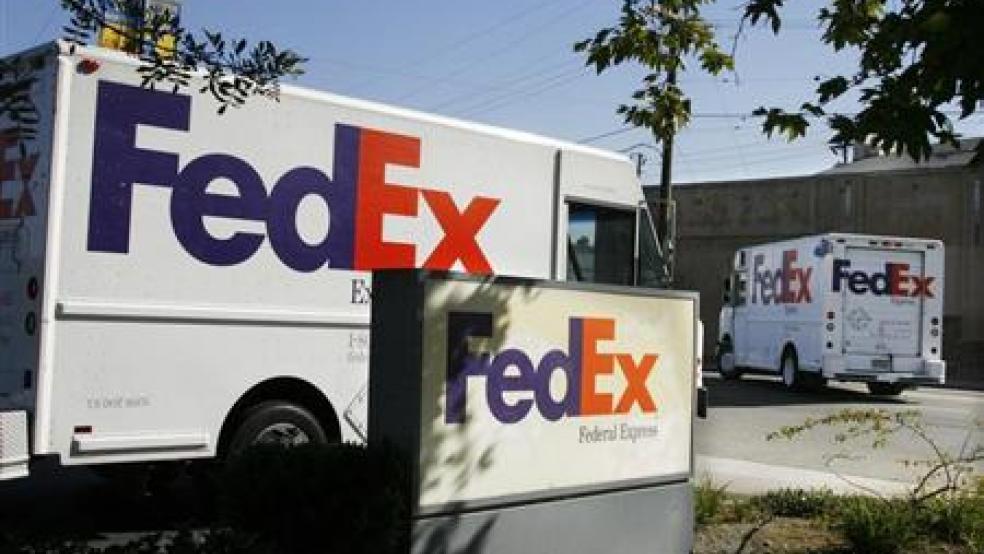The New York Times published a piece Saturday highlighting the huge windfall FedEx received from the 2017 GOP tax cuts — and the company’s CEO isn’t happy with the analysis.
According to the Times, the shipping and logistics giant saw its tax bill fall from $1.5 billion in 2017 to zero in 2018 thanks to the Tax Cuts and Jobs Act, which reduced the company’s effective tax rate from 34% in fiscal year 2017 to less than zero in fiscal year 2018. But the company did not increase its capital investments by as much as it said it would, according to the Times, raising questions about that crucial link in the economic chain through which the legislation was supposed to boost overall growth and deliver higher wages to U.S. workers.
FedEx CEO Frederick Smith — a prominent supporter of the legislation who argued in 2017 that the TCJA would make the U.S. a more attractive place to invest while generating “a renaissance of capital investment” — issued a statement Sunday saying the Times analysis was “factually incorrect” and an “outrageous distortion of the truth.” Smith claimed that the company invested in billions of dollars’ worth of capital goods after the tax cuts and also made substantial contributions to employee pensions.
However, Smith did not challenge the basic tax payment data in the Times article, and instead attempted to turn the tables on the newspaper, pointing to its tax history while challenging its CEO to a debate: "I hereby challenge A.G. Sulzberger, publisher of the New York Times and the business section editor to a public debate in Washington, DC with me and the FedEx corporate vice president of tax," he wrote. “The focus of the debate should be federal tax policy and the relative societal benefits of business investments and the enormous intended benefits to the United States economy, especially lower and middle class wage earners.”
In its reply to Smith’s statement, the Times said, "FedEx's colorful response does not actually challenge a single fact in our story. We're confident in the accuracy of our reporting."
As numerous observers noted, the odds of the debate actually occurring are fairly low.
It isn’t just FedEx: The Times’ Jim Tankersley, Peter Eavis and Ben Casselman said that FedEx provides just one example of the tax cuts providing a nice boost to earnings while failing to produce the kind of economy-transforming investment proponents claimed would follow:
“Nearly two years after the tax law passed, the windfall to corporations like FedEx is becoming clear. A New York Times analysis of data compiled by Capital IQ shows no statistically meaningful relationship between the size of the tax cut that companies and industries received and the investments they made. If anything, the companies that received the biggest tax cuts increased their capital investment by less, on average, than companies that got smaller cuts.”
And while the economy does appear to have gotten a short-term boost from the tax cuts, the effects faded quickly with little to show in the long run for the $1.5 trillion cost of the legislation. “Overall business investment during Mr. Trump’s tenure has now grown more slowly since the tax cuts were passed than before,” the journalists said.




